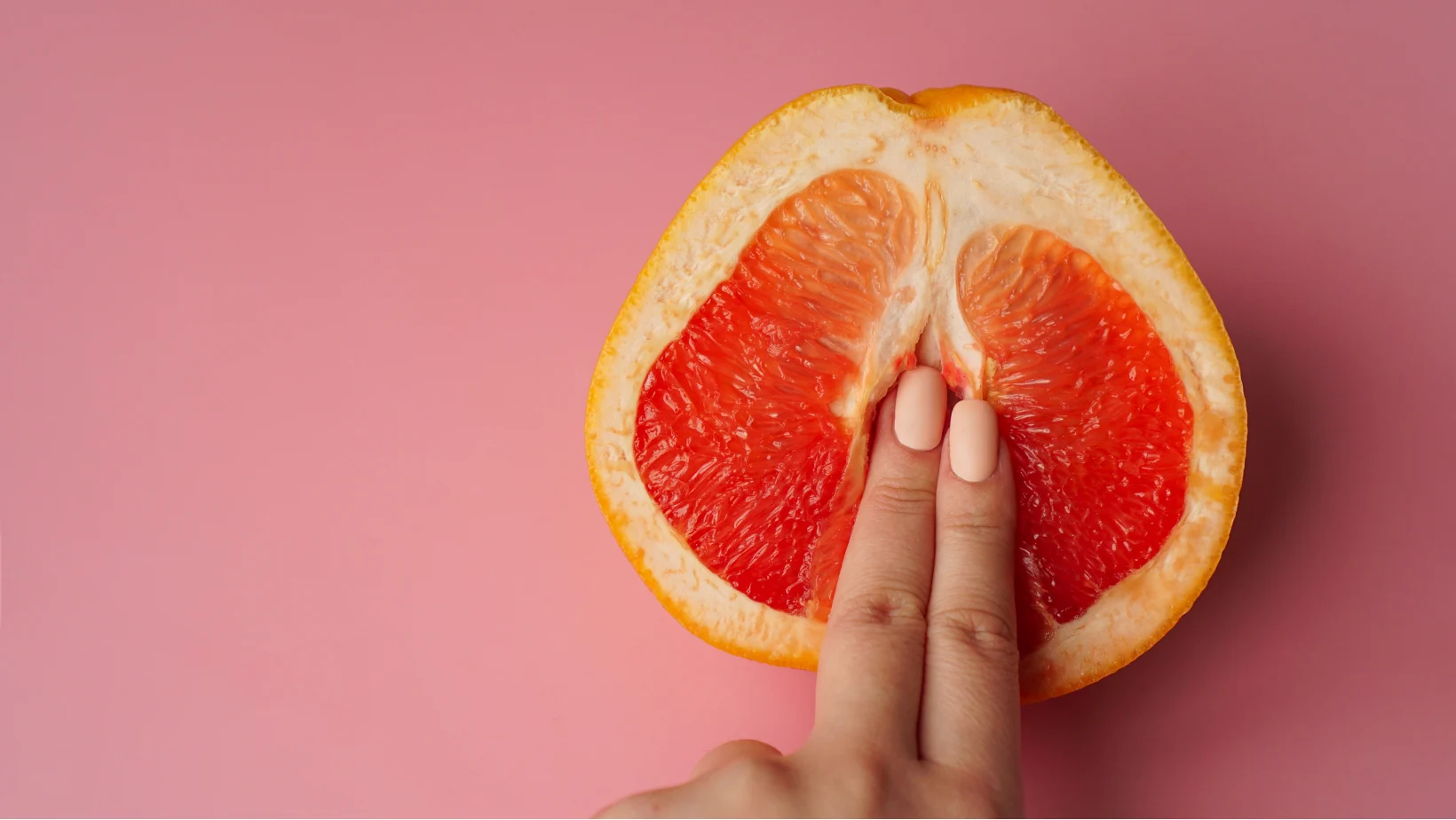Clit 101

With its whopping 10,281 nerve fibers, the clitoris—AKA the clit—is hands-down the most nerve-dense, ultra-sensitive pleasure zone of the body, more sensitive even than the hallowed penis—you heard it here first. For women and people with vaginas, the clitoris most often plays a frontline role in orgasm, and can be stimulated with both internal and external play. True story. Fun fact: the clit serves no known biological function other than pleasure.

The glans clitoris is the name of the external and visible part of the clitoris—the part that most people call the “clitoris.” It is part of the external and visible part of the female genitalia known as the vulva.
Where is it, you ask? There are no stupid questions, certainly not where erotic pleasure (your birthright!) is involved. You’ll find your clit (or your partner’s clit) just above the vaginal opening and the urethra—it’s the pea-shaped structure at the apex of the two labia. It’s covered by a little hood that protects it from too much stimulation. But—that’s not all there is to it, friend. The clitoris is so oh-so-much more.
Internal anatomy of a clit
The clit extends internally, far beyond the pea-sized hotspot that hogs all the cred. It has legs (AKA crura) and vestibular bulbs that wrap around the vagina. The shape of the entire structure is often referred to as a wishbone, with some parts of it being visible on the outside, but the majority of it being hidden away like so many magical roots.
The clit’s hidden legs and bulbs contain tissue that expands when you’re turned on. When you’re aroused, this swelling on either side of the vaginal canal actually serves to increase lubrication in the vagina, while also upping sensation. This expansion or swelling can even cause pressure to be applied to the front of the vaginal canal. In fact, vaginal penetration can feel great for the sensation it creates inside the vaginal walls, yes, but also for the pressure it can apply to the interior parts of the clitoris. Some research even suggests that the famed g-spot is actually the precise place where the clit’s bulbs hug the vaginal canal. In other words, the g-spot is simply a part of the clit that can be stimulated internally (!).

How to stimulate a clit
Stimulation of the clit can be applied directly (by touching the glans clitoris), through stimulation of other parts of the vulva (like the labia), or internally (through the vagina).
Some people find that a combination of penetration and external clitoral stimulation can result in intense orgasms. That said, direct stimulation of the glans clitoris or clitoral hood is usually needed for that final push to the big O.
Whether you're learning to do yourself right, or you’re determined to level up your partner-pleasuring ability, consider the following titillating tips:
Outside
- Start with very gentle strokes (of the glans clitoris). Then, apply more pressure/speed as your body (or your partner) asks for it.
- Use your hand, fingers, or a sex toy to slide up and down or back and forth across the clit and clitoral hood.
- Apply a gentle tapping motion on the clit and hood to help build a slow ascent to orgasm. Adjust speed as desired.
- Straddle a pillow and grind it to stimulate your clit. You don’t even have to take your clothes off—no hands required.
- Gently pinch the clitoral hood with two fingers, softly tugging up and down.
- Trace slow circles with a finger around the clit and hood, touching the labia by proxy.
- Lie on your belly (or have your partner do so) and massage other erogenous zones along with the clit—i.e., the labia, vaginal opening, inner thigh, perineum, or anus.
- Use a vibrator to bring take any of these techniques to the next level. Always start with the lowest setting first and work your way up if desired.
Inside
- Penetrate the vagina with your fingers or a sex toy while simultaneously going for any of the above-listed external stimulation techniques for a delicious helping of blended bliss.
- Reach about a third of the way inside the vagina and experiment with a mix of pressure and stimulation on the front or upper wall for some g-spot meets clit action.
Licking
- Trace your tongue around the outside of the clitoris. Use the flat of your tongue for more broad stimulation of the clit and labia, as using just the tongue tip can feel too pointy or intense.
- Lick it up, down, and all around, but alway be aware of the pressure of your tongue. Start off lightly and listen to your partners’ body cues and verbal feedback alike.
Bonus tip: if you’re stimulating someone else’s clit, there always the added factor of asking them for guidance, or for a demonstration of how they like it (hawt). And never ever forget consent and communication—they're hot AF.

How to make your clit bigger?
Some people want to know how to enlarge their clits—the internet says so.
Clitoral enlargement methods are a form of body modification that have the potential to increase the size of your clit and possibly enhance sexual pleasure.
The most common methods of clit enlargement are:
- The use of androgen-containing creams
- The injection of testosterone
- The use of a clitoral pump before/during masturbation or sex (for temporary effect)
It’s important to note that clitoral enlargement techniques do pose some risks, such as infection, scarring, loss of sensation, and potential long-term sexual dysfunction (not to mention unwanted hormonal effects if you go that route), so it’s best to really do your homework. In other words, read those pussy pump instructions very closely, and consult with qualified medical professionals if the hormonal avenue interests you.
When your clit doesn’t feel right
Clitoris pain, AKA clitorodynia can range from mild to severe, and can include burning, stinging, itching, rawness, irritation, discomfort, swelling, or soreness. The sensations can be constant, or they can come and go.

Causes of clitoris pain include:
- Irritation from soaps and other chemical cosmetic products
- Infections such as yeast infections, STIs, UTIs, and bacterial vaginosis
- Injury from sexual trauma. Sometimes, even after physical injuries have healed, the psychological effects of sexual abuse can lead to lasting vulvar pain, particularly during sexual activity.
- Any number of underlying conditions, such as diabetes, rheumatoid arthritis, and more.
Note: clitoral sensitivity is not the same as clitoris pain. It usually refers to mild soreness or discomfort with touch, and can sometimes be remedied by simply adjusting your methods of sexual stimulation by adding lube and/or building up to sexual activity more slowly and gently.
While clitoral pain or sensitivity are not typically considered emergencies, it’s always best to see your doctor ASAP to prevent any underlying conditions from worsening—and also because pleasure.
At the end of the day, always remember to treat your clit like the supercharged wonder of the world that it is! 💎